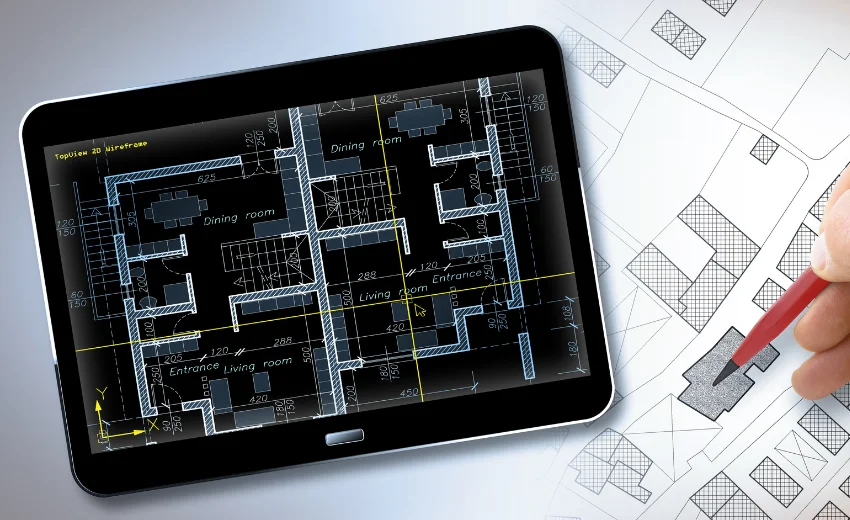In today’s rapidly evolving world, the construction industry plays a pivotal role in shaping the built environment. However, this sector also significantly impacts the planet, contributing to resource depletion, energy consumption, and carbon emissions. As global awareness of environmental issues grows, sustainability has become a cornerstone of modern construction projects.
Sustainability in construction is not just a trend but a necessity. It ensures that buildings and infrastructure are developed responsibly without compromising the needs of future generations. This article explores why sustainability is crucial in modern construction, its benefits, and how businesses and professionals can integrate eco-friendly practices into their projects.
- Understanding Sustainability in Construction
Sustainability in construction refers to designing, building, and operating structures to minimize their environmental footprint. This involves using resources efficiently, reducing waste, and prioritizing renewable and recyclable materials.
Fundamental Principles of Sustainable Construction
- Efficient Resource Use: Opt for materials requiring less energy and water during production.
- Energy Efficiency: Incorporating systems that reduce energy consumption, such as solar panels or energy-efficient HVAC systems.
- Waste Management: Reducing construction waste through recycling and reusing materials.
- Environmental Protection: Ensuring that construction activities do not harm ecosystems or biodiversity.
Adhering to these principles can significantly reduce construction projects’ environmental impact while enhancing their social and economic value.
- Why Sustainability Matters in Modern Construction
The construction industry is one of the most significant contributors to environmental degradation. The World Green Building Council estimates that buildings are responsible for nearly 40% of global carbon emissions, with construction processes alone accounting for a significant portion.
Global Challenges and the Role of Construction
- Climate Change: Rising temperatures and extreme weather events underscore the need for climate-resilient infrastructure.
- Resource Scarcity: Finite resources like water, minerals, and fossil fuels are under increasing pressure from urbanization and industrial growth.
- Waste Generation: Construction and demolition waste account for approximately one-third of global waste, much of which is in landfills.
Adopting sustainable practices allows the construction industry to address these challenges while contributing to a healthier, more resilient planet.
- The Benefits of Sustainable Construction
Sustainability in construction is not just an ethical responsibility; it also offers tangible benefits for businesses, communities, and the environment.
Environmental Benefits
- Reduced Carbon Footprint: Energy-efficient designs and renewable materials help lower greenhouse gas emissions.
- Conservation of Resources: Using recycled or locally sourced materials minimizes resource extraction and transportation-related emissions.
- Biodiversity Protection: Green spaces and eco-friendly designs support local ecosystems and wildlife habitats.
Economic Advantages
- Long-Term Savings: Energy-efficient buildings reduce utility costs for occupants over time.
- Enhanced Property Value: Sustainable buildings often have higher market demand due to their eco-friendly features.
- Regulatory Compliance: Many governments incentivize green construction through tax breaks, grants, or fast-tracked permits.
Social and Community Impact
- Healthier Living Spaces: Sustainable buildings improve indoor air quality, lighting, and ventilation, promoting occupant well-being.
- Community Engagement: Eco-friendly projects often prioritize community needs, such as green spaces and accessible infrastructure.
By aligning economic, environmental, and social goals, sustainable construction creates value for all stakeholders.
- Strategies for Implementing Sustainability in Construction
Adopting sustainable practices requires a holistic approach, integrating green principles at every project stage.
- Green Building Materials
Choosing sustainable materials is one of the most effective ways to reduce a project’s environmental impact.
- Examples: Bamboo, recycled steel, reclaimed wood, and low-carbon concrete.
- Benefits: These materials reduce reliance on non-renewable resources and minimize waste.
- Energy-Efficient Designs
Incorporating energy-efficient systems and renewable energy sources can dramatically lower a building’s energy use.
- Techniques: Installing solar panels, using LED lighting, and designing for natural ventilation.
- Case Study: Passive house designs use insulation and airtight construction to maintain indoor temperatures.
- Waste Reduction and Recycling
Managing waste effectively can cut costs and reduce the environmental burden of construction.
- Approach: Segregate construction waste, reuse materials onsite, and collaborate with recycling facilities.
- Impact: Diverting waste from landfills conserves resources and reduces pollution.
- Water Conservation
Water-efficient systems and practices are essential in drought or water scarcity areas.
- Solutions: Rainwater harvesting, greywater recycling, and low-flow fixtures.
- Outcome: These systems reduce water consumption while maintaining functionality.
- Technology Integration
Modern technology can make sustainable construction more accessible and efficient.
- Tools: Building Information Modeling (BIM) to optimize designs and minimize material use.
- Benefits: Technology streamlines processes, improves accuracy, and reduces waste.
- The Role of Certification and Standards
Sustainable construction practices are often guided by established certifications and standards, ensuring accountability and consistency.
Popular Green Certifications
- LEED (Leadership in Energy and Environmental Design): A globally recognized framework for sustainable buildings.
- BREEAM (Building Research Establishment Environmental Assessment Method): Focuses on reducing environmental impact during construction.
- Green Star: Commonly used in Australia and New Zealand to measure environmental efficiency.
Why Certifications Matter
Green certifications provide third-party validation of a building’s sustainability credentials, enhancing its reputation and marketability.
- Overcoming Challenges in Sustainable Construction
While the benefits of sustainable construction are clear, implementing these practices is challenging.
Common Hurdles
- Higher Initial Costs: Green materials and technologies can have a higher upfront price, deterring some developers.
- Lack of Expertise: Not all professionals are familiar with sustainable construction methods, leading to implementation gaps.
- Regulatory Barriers: Navigating complex environmental regulations can be time-consuming and costly.
Solutions
- Education and Training: Invest in workforce training to build expertise in sustainable practices.
- Collaboration: Partner with experienced consultants, suppliers, and stakeholders to share knowledge and resources.
- Policy Advocacy: Work with policymakers to streamline regulations and incentivize green construction.
Conclusion: Building a Sustainable Future
Sustainability is no longer a choice but a necessity in modern construction projects. By embracing eco-friendly materials, energy-efficient designs, and innovative technologies, the construction industry can reduce its environmental footprint while delivering lasting value to communities and stakeholders.
While challenges exist, the benefits of sustainable construction far outweigh the costs. Developers, architects, and contractors who prioritize sustainability contribute to a healthier planet and position themselves as leaders in an increasingly eco-conscious market.
As we move toward a more sustainable future, the construction industry must continue to innovate, collaborate, and commit to practices that balance development with environmental responsibility. In doing so, we can ensure that the buildings of tomorrow meet the needs of both people and the planet.

